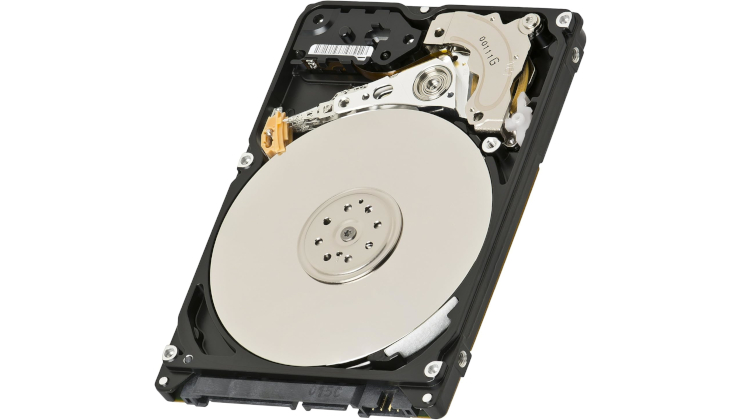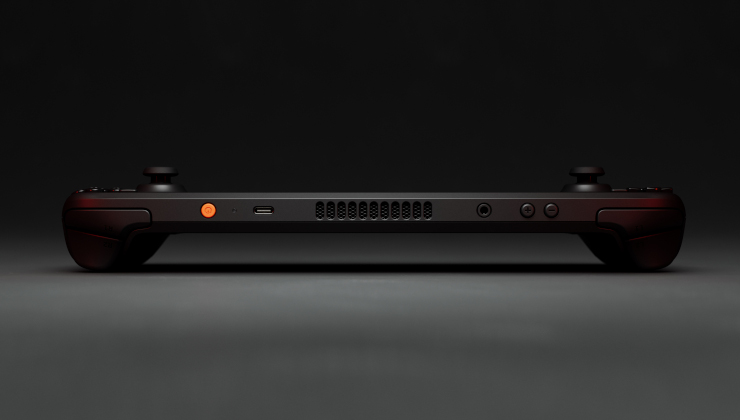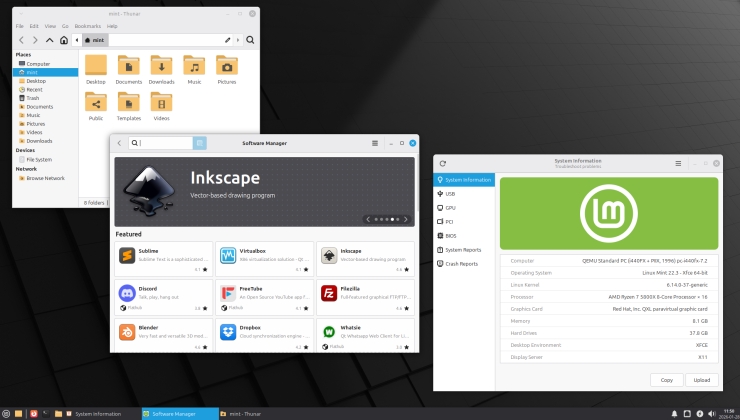Valve are committed to Linux and Linux gaming with Steam, that much is currently clear. They're working with so many contractors on various things, and it seems not everything is as people think.
Recently, Collabora, one of the companies they're contracting with went over a bunch of details like their upcoming Linux Kernel work coming to Linux 5.11 and then a quick overview of everything. Many people thought that a lot of the ongoing work, like the Kernel work was to help things like anti-cheat with Steam Play Proton and it was mentioned by Collabora however it seems that's not exactly the case. Valve developer Pierre-Loup Griffais commented on Reddit to clear up on some speculation, mentioning that Collabora did some speculating of their own.
Griffais mentioned the Kernel work is "nothing to do with anti-cheat" and is instead for anti-tamper and DRM to function properly while also mentioning proper anti-cheat support "is still a long ways out and will need vendor support". That alone is going to be a sore spot for a long time for multiplayer titles run through the Proton compatibility layer, which is why we have an FAQ entry for Easy Anti-Cheat and BattlEye (the most popular) on our dedicated Proton site.
Other points mentioned are that the Steam Linux Runtime Container has nothing to do with security, OpenXR for SteamVR was done by Valve directly (Collabora's own VR work like Monado is unrelated), and the "image-based updater work" is actually towards improving live USB media to update them without losing user data.
I get it, Linux customers are paying customers, but Valve have contracted several companies, individuals, fulltime employees, contact with GPU vendors etc. This seems like way more financial and time investment than what our meagre 1-2% is worth.
Quoting: rustybroomhandleI still want to know what the mission is with all of this. Not technically, but from a business perspective.I don't think that it's something big incoming, this is just a signal to Microsoft that's a bad idea to close Windows to their store. Valve have a lot of money,even if it don't recover the investiment, I don't think that's a problem
I get it, Linux customers are paying customers, but Valve have contracted several companies, individuals, fulltime employees, contact with GPU vendors etc. This seems like way more financial and time investment than what our meagre 1-2% is worth.
[...] and the "image-based updater work" is actually towards improving live USB media to update them without losing user data.I wondered what this is about, looked it up and they're saying it "is part of a set of efforts to attempt to improve the experience of trying out Linux on a normal PC with live USB media". So they're also making efforts to help people try out Linux and eventually switch systems. :)
Quoting: rustybroomhandleI still want to know what the mission is with all of this. Not technically, but from a business perspective.1-2% of Valve revenue is still something like 25 to 50 millions dollars. I suppose that pay for a few fulltime employees
I get it, Linux customers are paying customers, but Valve have contracted several companies, individuals, fulltime employees, contact with GPU vendors etc. This seems like way more financial and time investment than what our meagre 1-2% is worth.
Quoting: rustybroomhandleI still want to know what the mission is with all of this. Not technically, but from a business perspective.Independence and a service to users and developers/publishers by offering a platform that supports the game. That's a lot of value.
I get it, Linux customers are paying customers, but Valve have contracted several companies, individuals, fulltime employees, contact with GPU vendors etc. This seems like way more financial and time investment than what our meagre 1-2% is worth.
Quoting: amatai1-2% of Valve revenue is still something like 25 to 50 millions dollars. I suppose that pay for a few fulltime employeesBut what part of it would they lose if they silently faded out of improving Linux support?
Most people would either continue to buy and play on Linux or buy and play on Windows.
Which is a bit of a pity that relatively few people use it. Most people are making the creeping switch from PC to mobile devices. For the majority, this is not a conscious decision at all, it just happens.
But we shouldn't be discouraged by it. We know computer life has much more to offer than the walled gardens of Apple and others. Children profit much from Linux PCs and are very open-minded towards them as I have noticed many times in the meantime. The large availability of games makes this a lot easier. Actually nothing is really missing. You just have to take the existing games and things and do something good with them.
Other systems like Windows, MacOS, iOS or Android also have limitations. Even quite a lot of limitations. That is why we use our Linux PCs and Laptops. Let's see where Valves and our journey leads next. It remains exciting.
Quoting: EikeThere must already be maintenance and improvements. Otherwise it becomes boring and static.Quoting: amatai1-2% of Valve revenue is still something like 25 to 50 millions dollars. I suppose that pay for a few fulltime employeesBut what part of it would they lose if they silently faded out of improving Linux support?
Most people would either continue to buy and play on Linux or buy and play on Windows.
I don't know about you guys, but I'm already dragging some people along. Young people. Kids, mostly. They wouldn't be on Steam otherwise.
I think Linux is still a growth market where new people are actually coming in. There might be a counter-movement to the smartphones and mobile devices in the future. It won't be cool anymore to use the same device as your parents. :)
Playing under Linux is just cool. You have so many possibilities to customize things and you can do so much yourself. You can be so creative. If everyone would be just customers in the future, this can't work either.
I think there is a positive attitude and curiosity at Valve. They don't sell insurance and do pure profit maximization. Life must also be fun and have some meaning.
Quoting: 1xokI think there is a positive attitude and curiosity at Valve. They don't sell insurance and do pure profit maximization. Life must also be fun and have some meaning.:heart:
Quoting: fagnerlnand thats the good thing in valve not being a stock corporation but privately owned - they can do things that are "right" in the long run instead of only looking at ROI.Quoting: rustybroomhandleI still want to know what the mission is with all of this. Not technically, but from a business perspective.I don't think that it's something big incoming, this is just a signal to Microsoft that's a bad idea to close Windows to their store. Valve have a lot of money,even if it don't recover the investiment, I don't think that's a problem
I get it, Linux customers are paying customers, but Valve have contracted several companies, individuals, fulltime employees, contact with GPU vendors etc. This seems like way more financial and time investment than what our meagre 1-2% is worth.
And while i'm not really fond of the kernel work being towards DRM, i guess we live in a reality where many people won't boycott things they don't want. So it kinda is another step towards bringing Linux to the needed marketshare...
Quoting: 1xokI think there is a positive attitude and curiosity at Valve. They don't sell insurance and do pure profit maximization. Life must also be fun and have some meaning.Like good old Interplay Black Isle: "we want to make games, to make games we need money." compared to EA Bioware: "we want money, to get money we need to make games."
Quoting: fagnerlnValve have a lot of money,even if it don't recover the investiment, I don't think that's a problemIt may not directly cover the investment (although, as amatai says, it probably does), but if it keeps Microsoft honest and off Valve's turf, it has a greater value, affecting the entire Steam business.
Quoting: GuestI have said all along that the anti cheat issue was going to need the involvement of the anti cheat vendors so I am uttlerly unsurprised that this kernel work has nothing to do with making anti cheat systems work.Mind you, it seems pretty clear that whether that's what they say it's for or not, it should help with those efforts. So although it's reasonable for them to not want people to get up hopes that Anti-cheat will suddenly turn up tomorrow because of this, I think maybe they protest too much when they say it has no relationship. In the end, it probably will.
Last edited by Purple Library Guy on 15 Nov 2020 at 6:03 pm UTC
Quoting: GuestI'm pretty against tailoring Linux (kernel) towards DRM (digital rights management) because that seems to me against the entire ideal of it.This isn't really that, though. This is changing the kernel to help Wine. Sure, anti-tamper in Windows applications is a likely source for Windows syscalls being issued directly rather than going through Windows/Wine libraries, but equally some devs just suck. These changes stop those Windows applications messing up your system with their suckiness, by bouncing it back to Wine.
Kernel changes to allow DRM already happened: HDCP support, secure enclaves, and the like.
So they may be thinking of it partly as a hedge against Microsoft, but also partly they may be hoping for Linux market share to increase on its own, and also partly they may be thinking about using it in some kind of hardware, and specifically they may think that one day if they can get Proton etc really reliable they might try again on Steam Machines, or do some kind of streaming thing using it, or . . . Linux is very much a Swiss army knife, you can use it for a lot of stuff. So they might just be thinking that they're not sure quite what they'll end up using it for, but there are a lot of possibilities if they make sure the technology is solid.
Quoting: rustybroomhandleI still want to know what the mission is with all of this. Not technically, but from a business perspective.Someone on Reddit crunched some numbers a while back to answer this question:
I get it, Linux customers are paying customers, but Valve have contracted several companies, individuals, fulltime employees, contact with GPU vendors etc. This seems like way more financial and time investment than what our meagre 1-2% is worth.
https://www.reddit.com/r/linux_gaming/comments/dgvmkk/crazy_idea_what_if_valve_is_supporting_linux/
Quoting: Purple Library GuyIt may be that they themselves don't exactly know why they're working on upgrading Linux and Linux gaming. It might be more like, they know it's the only major OS that nobody else controls, they know it's good technology that can be used for a whole lot of different purposes, so they figure it's bound to be good for something.Yes, I also think it more something like you describe than anything else. As far as I read Valve is pretty decentralized. So I guess some people within Valve just had the idea to do something with Linux and went forward with it. Considering the overall huge Steam user numbers even just bringing the ~ 1% Linux users to buy some more games on Steam due to Proton might justify the expenses for hiring all the external manpower and of course the internal Valve people working on this.
So they may be thinking of it partly as a hedge against Microsoft, but also partly they may be hoping for Linux market share to increase on its own, and also partly they may be thinking about using it in some kind of hardware, and specifically they may think that one day if they can get Proton etc really reliable they might try again on Steam Machines, or do some kind of streaming thing using it, or . . . Linux is very much a Swiss army knife, you can use it for a lot of stuff. So they might just be thinking that they're not sure quite what they'll end up using it for, but there are a lot of possibilities if they make sure the technology is solid.
Initially I thought more about Linux support being the groundwork for a kind of Valve streaming service, but not so sure anymore.
Quoting: GuestGNU/Linux marketshare grow by being GNU/LinuxIt's impossible. In case you haven't noticed, business doesn't work that way. And developers are interested in something completely different.
Quoting: Purple Library Guythey themselves don't exactly know why they're working on upgrading Linux and Linux gamingAbsurdity. We are now talking about a huge Corporation, not about young students.
Quoting: GuestThere's a good book called "Rebel Code", by Glyn Moody, which details exactly how the impossible happened and became GNU/Linux. Includes details of how many businesses embraced GNU/Linux precisely because of the ideals behind it.Linux has become ideal and popular where it is now. But not on the desktop.
And again, we are not talking about raising Linux from scratch now. Developers from all this fragmentation and shit want to choose the best and take advantage of it. For gaming, for home use. So it's worth making some sacrifices.













 How to setup OpenMW for modern Morrowind on Linux / SteamOS and Steam Deck
How to setup OpenMW for modern Morrowind on Linux / SteamOS and Steam Deck How to install Hollow Knight: Silksong mods on Linux, SteamOS and Steam Deck
How to install Hollow Knight: Silksong mods on Linux, SteamOS and Steam Deck